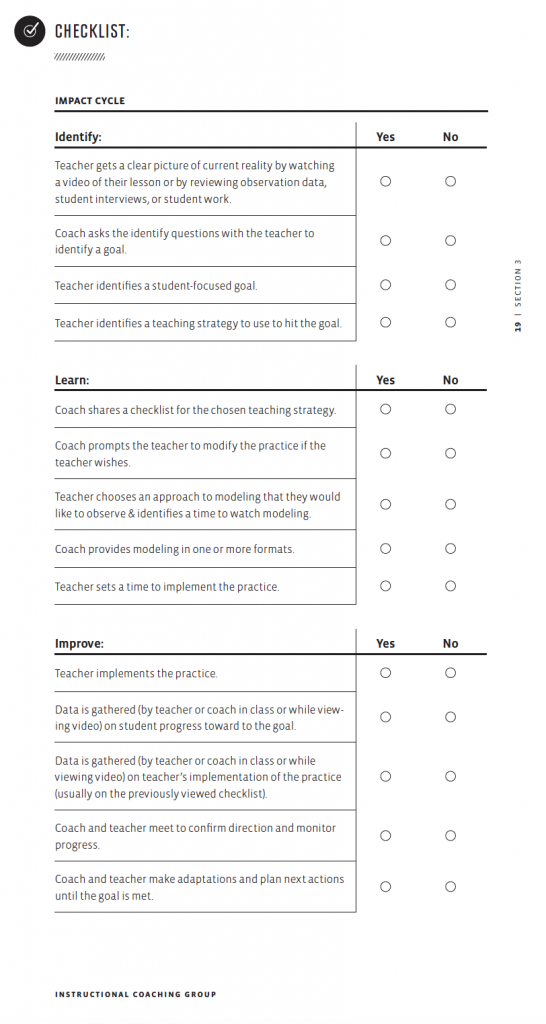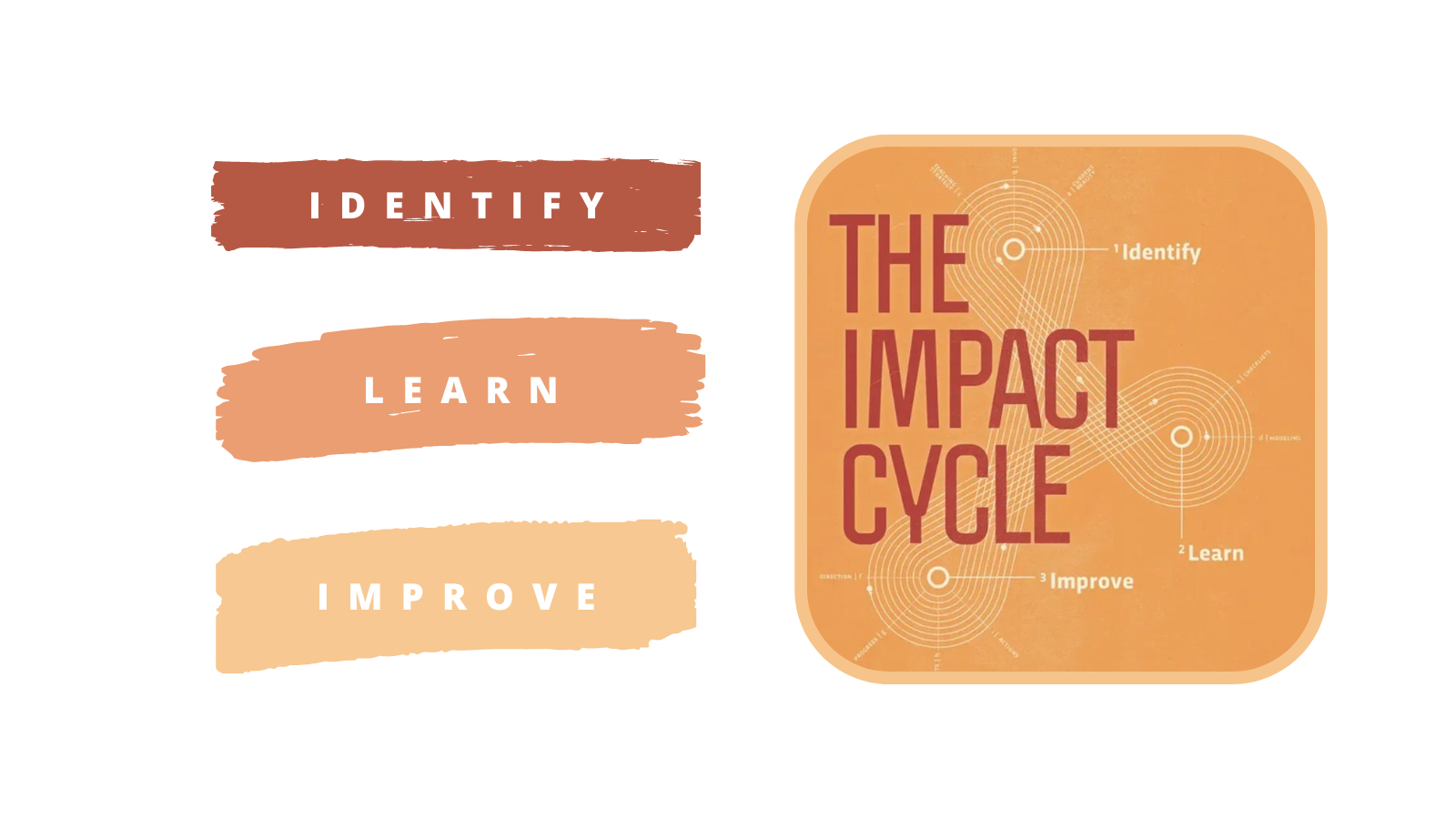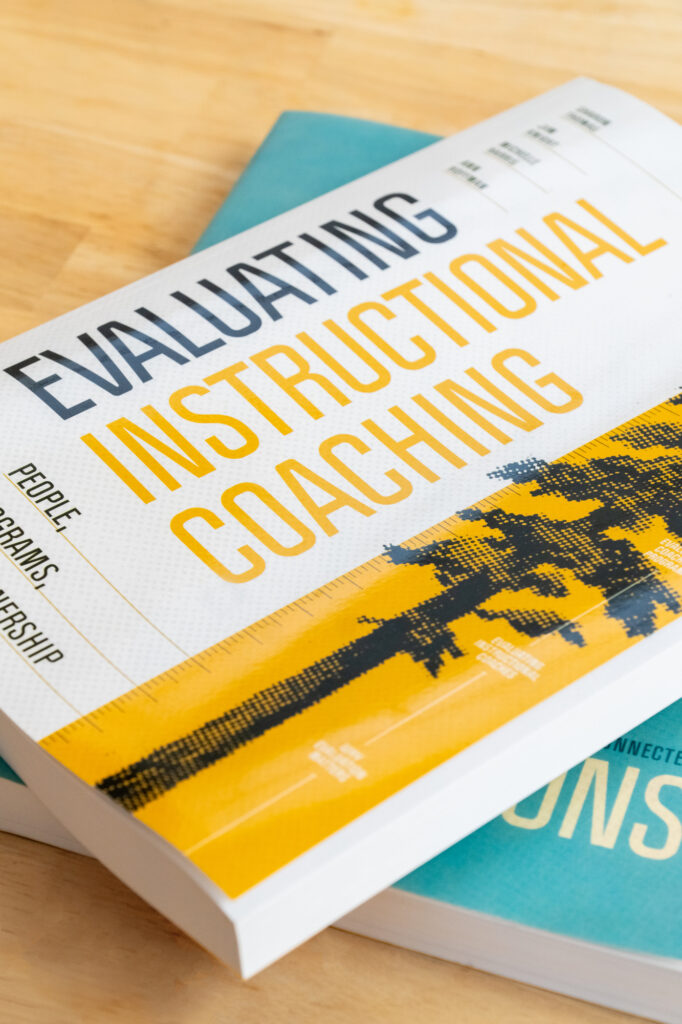“Tomorrow belongs to the people who prepare for it today.“
—African Proverb
For coaching to succeed, it needs to get off on the right foot. For that reason, we suggest that coaches have a short conversation with their collaborating teacher to ensure that both teacher and coach have a clear understanding of how coaching will proceed. This conversation isn’t for setting a goal or identifying a teaching strategy to learn—we think that both those actions should happen after coach and teacher have a clear picture of reality. This conversation is just a chance for the teacher to ask any questions she has about coaching, and for the coach to explain the process. You can download a checklist for the Impact Cycle here.

It is often helpful for the coach to begin by providing a very quick overview of the coaching process, an explanation of the confidentiality policy, and a clarification that the teacher is in charge of the coaching process. Once these details are out of the way, the coach should ask the collaborating teacher if she has any questions.
Following this, we suggest the coach dives deeper into The Impact Cycle by explaining each item on the Impact Cycle checklist and then asking the collaborating teacher how he or she would like to proceed. Of course, to clearly explain the Impact Cycle, coaches will need to have a deep understanding of each item on the checklist.
Identify
When discussing the Identify Stage of the Impact Cycle, for example, the coach will need to explain the pros and cons of each way of getting a clear picture of reality (reviewing video of a lesson, student interviews, reviewing student work, or observation data) and then ask the teacher which method works best for her. Then, the coach should explain the PEERS goal framework and that a teaching strategy will be identified to hit the goal.
Coaches will likely want to clarify that although they are happy to share ideas about such issues as how a goal might be measured, or what strategy could be used to hit the goal (look for a future blog on this topic), the teacher makes the decisions about how to get a picture of reality, the goal, what strategy will be used to hit the goal, and other aspects of coaching.
Learn
When discussing the Learn Stage, the coach should explain that he or she will do everything to ensure that the teacher is ready to implement the new strategy. This means that the teacher and coach will review a checklist for the strategy (or create one when that makes more sense) and discuss how the strategy might need to be adapted to best meet students’ needs and fit with the collaborating teacher’s strengths. Also, the coach should explain why it might be helpful for the teacher to see the strategy being used, and explain that that can happen by the coach modeling in the collaborating teacher’s classroom (with or without students there), by observing another teacher, by coach and teacher co-teaching, or by watching video of a teacher implementing the strategy.
Improve
When discussing the Improve Stage, the coach should explain that oftentimes adaptations need to be made to hit the goal, so during this stage, coach and teacher will need to collaboratively problem solve what adaptations need to be made so that the students’ goal can be met.
After the checklist has been reviewed, and all the teacher’s questions have been answered to the satisfaction of the teacher, coach and teacher should make a plan for the next six weeks, identifying when each of the steps of the cycle will occur. We think it is best if coach and teacher determine the exact dates up front because when that kind of planning doesn’t occur, there is a chance that things will get off track. As Denise Brennan-Nelson has said, “someday is not a day of the week.” As the coaching cycle gets underway, some of the original dates may need to be modified, but it is important to set the intention of planning with deadlines from the beginning. This puts a priority on setting exact dates together, instead of depending on achieving goals “someday.”
Lastly, after the meeting is over, the coach should send a detailed email to the collaborating teacher, re-stating key ideas (for example about confidentiality and decision-making), and listing all the cycle steps to be completed and when they have agreed they will occur.



























